Latinx Files: The other Coachella
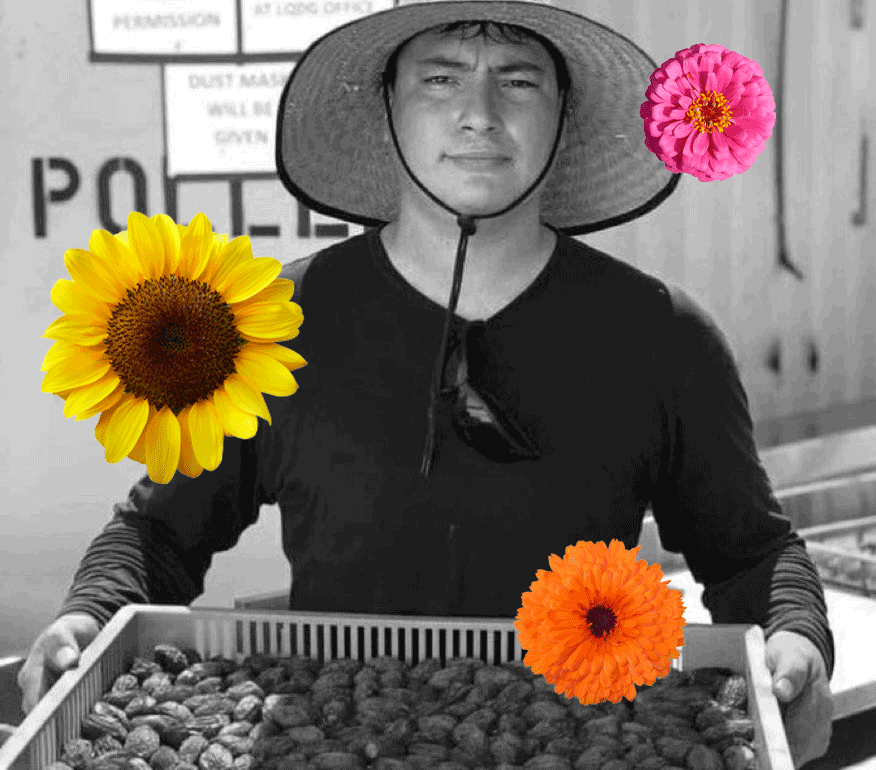
- Share via
When I think of Coachella, the first thing that comes to mind is an influencer wearing a flower crown trying to take the perfect Instagram photo.
This weekend, however, I came across two tweets that made me reevaluate that admittedly unfair characterization.
The first was an image posted to Twitter on Friday evening right around the time that Grupo Firme was set to perform for the first time at the Coachella Valley Music and Arts Festival. As my colleague Suzy Exposito reported, Mexican regional music is prominently represented in this year’s lineup.
It was a fact not lost on Paisa Twitter.
Within moments of the lineup reveal back in January, photoshopped images of headliner Harry Styles dressed as a takuache popped up in my little corner of the internet. The running joke was that it wasn’t just going to be hipsters at Coachella, but toxicas and tíos too.
And then it actually happened.
“Grupo Firme at Coachella is a vibe,” Angel Chavez tweeted, attaching a photo of an older Latinx couple waiting in the crowd to watch the Tijuana band’s historic performance.
“I knew it was going to go viral,” the 29-year-old budding YouTube content creator and Coachella resident told me. His post currently has more than 2,500 retweets.
In the quote tweets, people commented about how the photo was aspirational and heartening. They saw a future version of themselves or a proxy for their parents having a good time.
“It just felt like it was people from the neighborhood,” Chavez added.
The Latinx experience chronicled
Get the Latinx Files newsletter for stories that capture the multitudes within our communities.
You may occasionally receive promotional content from the Los Angeles Times.
The second tweet in question came from @UFWUpdates, the social media account of the United Farm Workers, the union founded by Cesar Chavez and Dolores Huerta.
It was a clever response to a tweet by a popular pro-labor account that rhetorically asked what “a Coachella” was, and it also included a photo. But instead of showing festivalgoers, the image featured farm worker Albam Ochoa holding a crate of dates.
It was a reminder that Coachella isn’t just a place for music festivals. It’s also an agricultural hub that feeds this country.
“I feel like we’re at this point in society where there’s a huge number of people who think they know what fruit is healthiest for them based on their blood type but have no concept of the reality of what it took to get that food to their plate,” said Elizabeth Strater, a UFW organizer who helps run the union’s social media accounts.
Strater says one of the primary goals of @UFWUpdates is to humanize and to give a voice to the farmworkers. Although she replied to the tweet by Jorts the Cat (for more on Jorts, read columnist Anita Chabria’s profile from last month), the photo of Ochoa was taken by his co-worker Fredy Alban. In fact, much of the content published by the account comes from the workers themselves.
“When you look at the account every single day, you’re going to see a farmworker, you’re going to hear their name and you’re going to hear their message.”
Near the end of our conversation, Strater offered to put me in touch with Aguileo Rangel Rojas, a farmworker and resident of the Coachella Valley since 2004, to get the local perspective.
Originally from Guanajuato, the 54-year-old has picked grapes, lettuce and carrots.
In his free time, he likes to pick at his guitar or play the accordion. Music turns him into another person, he said. He interprets other people’s songs, but likes to write his own too. At one point, Rangel mentioned he was working on a corrido in honor of slain journalists in Mexico and abroad, and even sang the first two verses a cappella. His dream is to one day record his music.
Rangel says his experience of the festival doesn’t go beyond driving past it, though he doesn’t completely dispute the common characterization of the region.
“Esa es la realidad, porque aquí se hace la fiesta,” he says. That’s the reality because that’s where the party happens.
“Pero si se refiere a la forma de vida que llevamos muchas personas aquí, pues esa realidad está muy lejos de como vivimos.”
That other Coachella, he says, is another world.
Consider subscribing to the Los Angeles Times
Your support helps us deliver the news that matters most. Become a subscriber.
Things we read this week that we think you should read
— In case you missed it: Last week was the 75th anniversary of Mendez, et al. vs. Westminster School District of Orange County, a federal case that desegregated schools in California and laid the legal groundwork for Brown vs. Board of Education, the historic Supreme Court case that ruled “separate but equal” as unconstitutional. My colleague Paloma Esquivel spoke to 85-year-old Sylvia Mendez, who has made it her mission that young Latinxs know about her parents’ vital and still relevant work.
— Sabrina Rodriguez of Politico reports that House Majority PAC, a political action committee purportedly created to help Democrats preserve the slim and slipping majority they have in Congress, is facing backlash for backing Carrick Flynn, a white, first-time candidate, over Andrea Salinas, a Mexican American candidate who has received the endorsement of Oregon Gov. Kate Brown, in the primary race for the state’s 6th Congressional District.
“There’s all this talk [from Democrats] about Latino voters, but where are we talking about Latino candidates and Latino representation and the party prioritizing that?” said Yvonne Gutierrez of the Latino Victory Fund.
— Hockey is taking off in Mexico and the NHL is taking notice.
— What I’m currently listening to: Glare, a shoegaze-y band from Rio Grande Valley (puro 956 cuh!).
And now for something a little different.
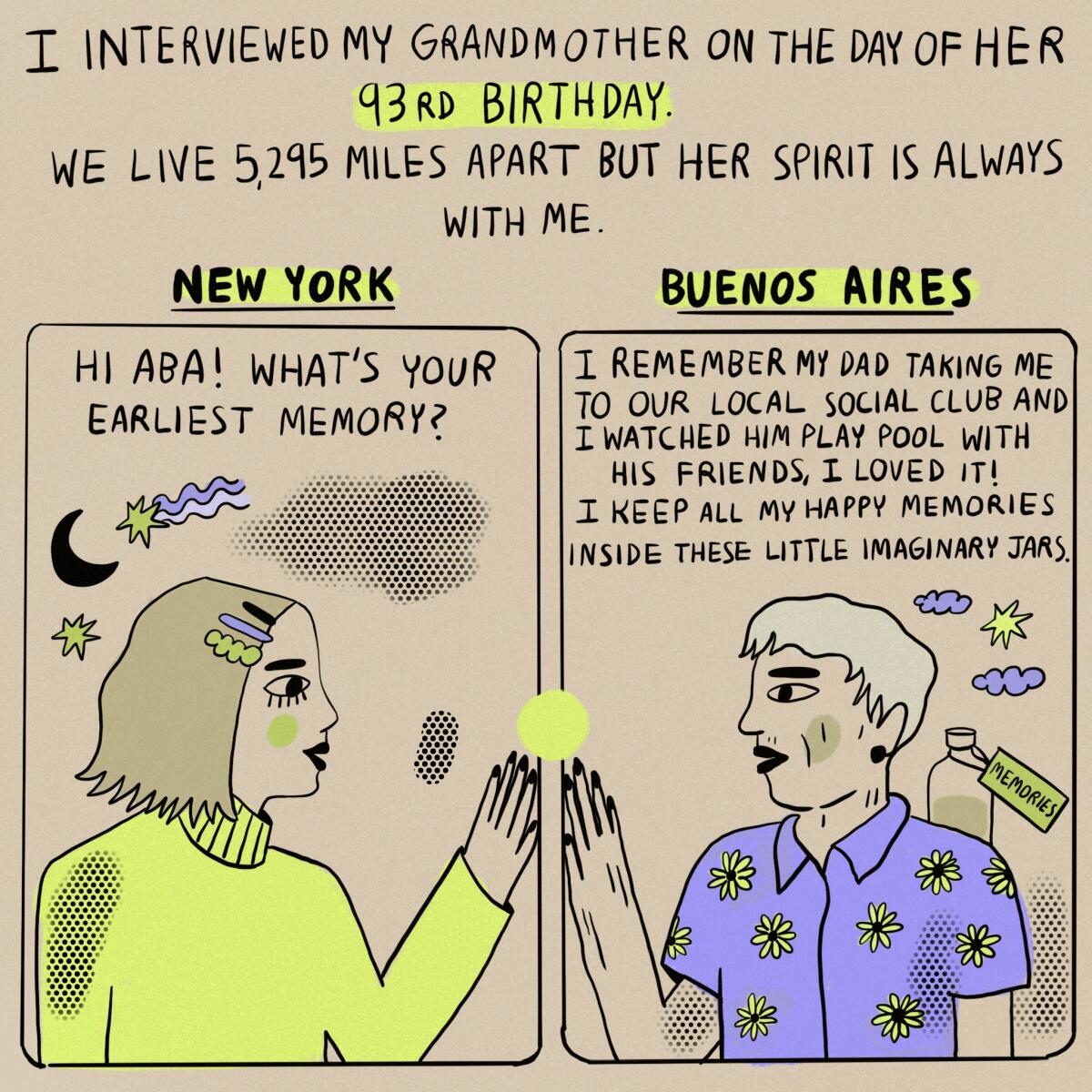
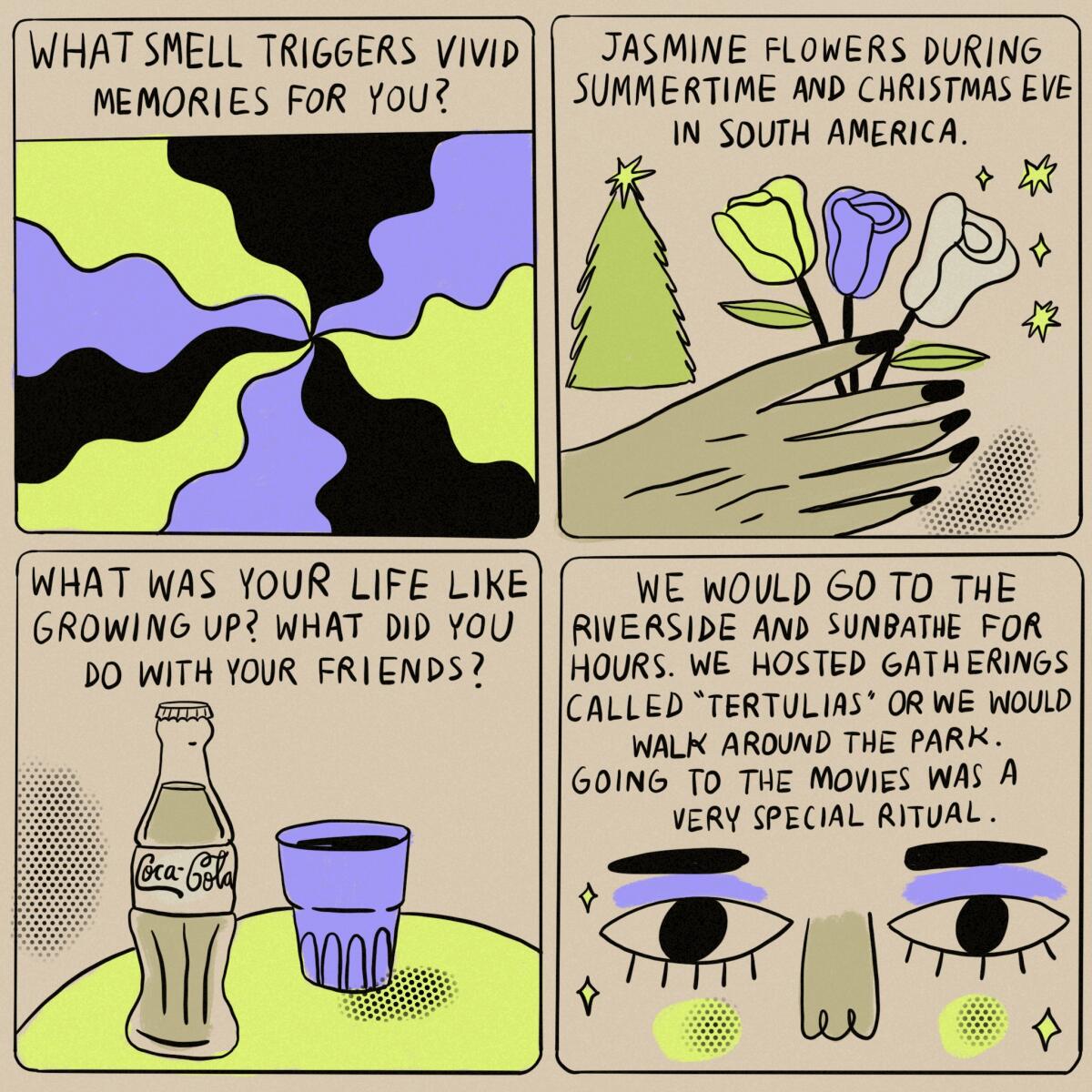
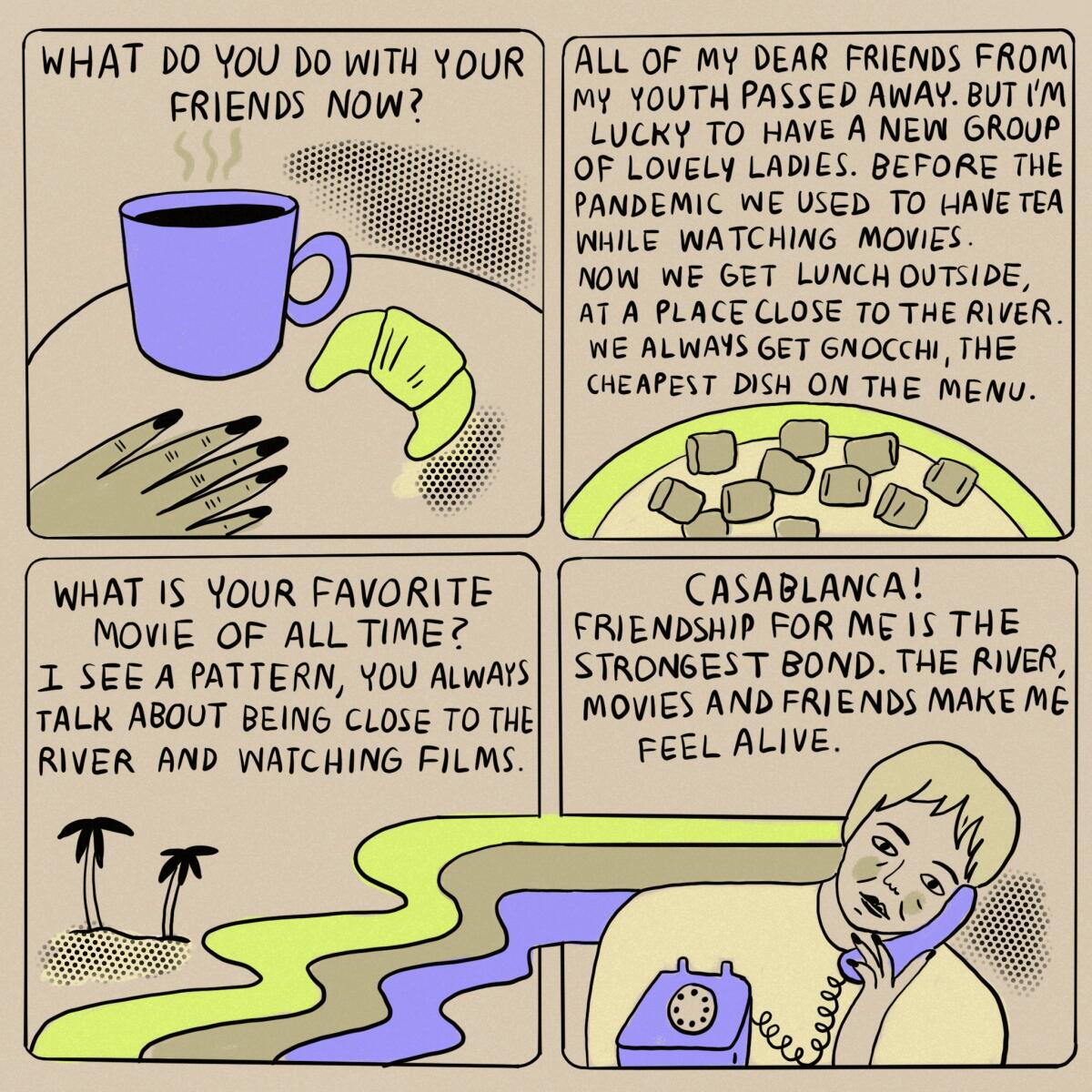
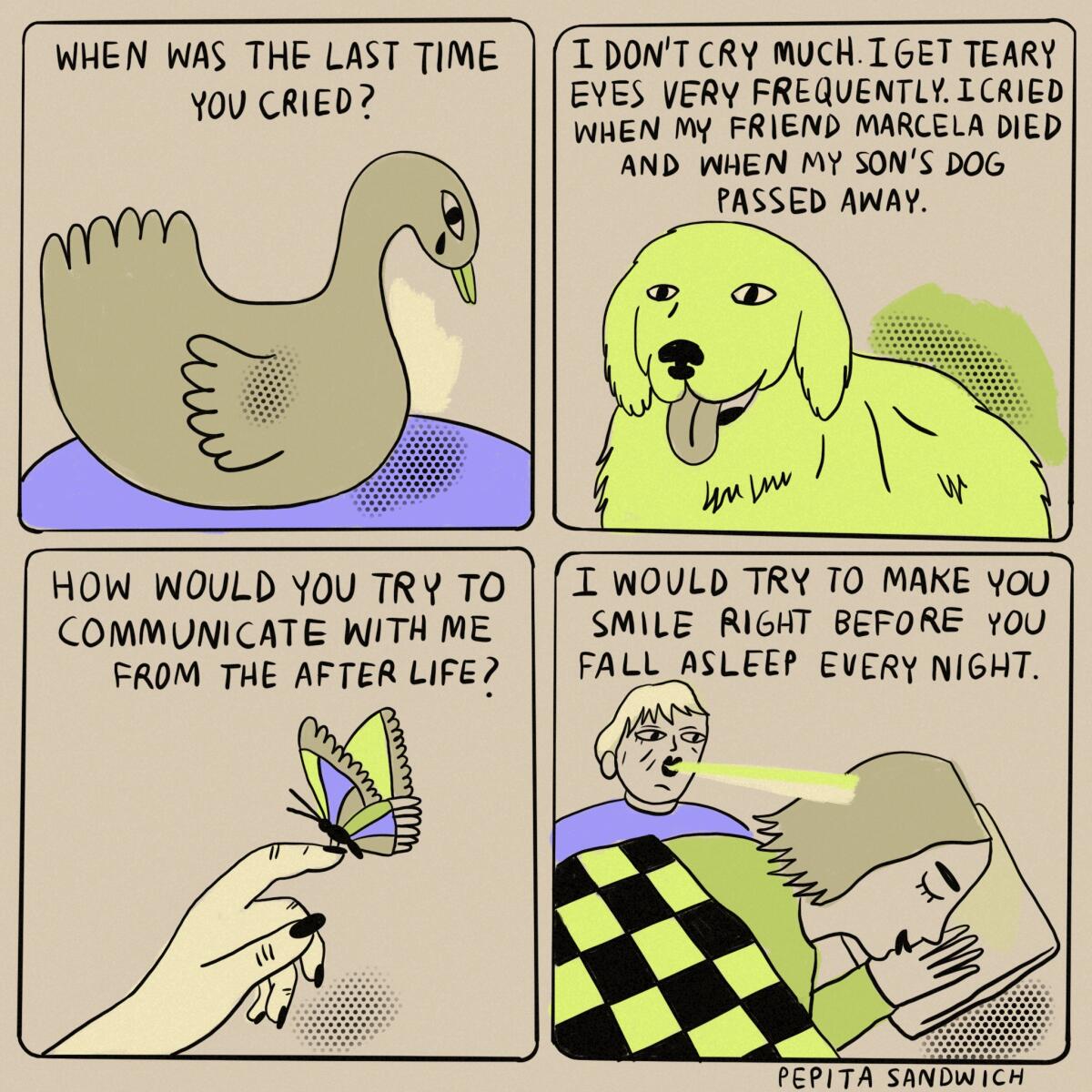
Pepita Sandwich is an Argentinian illustrator and visual artist living in Brooklyn. Her unique drawings showcase a distinct style marked by rich color palettes, a sense of motion and a voice of her own. Her storytelling skills elevate autobiographical experiences that turn into universal narratives, and she connects with her audience through topics that go from mental health to nostalgia, diversity and intersectional feminism.
“My grandmother is one of the biggest inspirations in my life and I want to understand how the world changed for her through the years and how she imagines the afterlife. We had an honest and open conversation about life, death and feelings. I tried to get instructions from her on how to keep living with her physical presence and I realized she will always live with me.”
Are you a Latinx artist? We want your help telling our stories. Send us your pitches for illustrations, comics, GIFs and more! Email our art director at [email protected].
The Latinx experience chronicled
Get the Latinx Files newsletter for stories that capture the multitudes within our communities.
You may occasionally receive promotional content from the Los Angeles Times.




